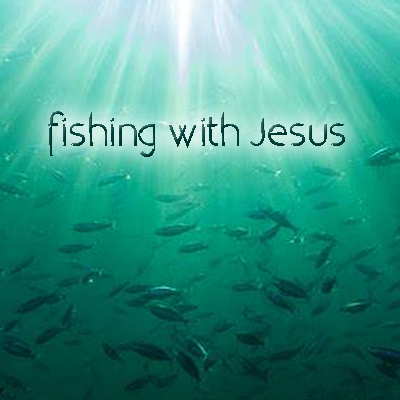I arise today...
Through God’s host to save me
from snares of devils...
The Lorica of Saint Patrick (St. Patrick's Breastplate Prayer)
I arise today through God’s host to save me…
… from snares of devils,
… from temptation of vices,
… from everyone who shall wish me ill, afar and near
These next three lines of our prayer seem to fit nicely together. Essentially they summarize what we have been talking about over the past few weeks, that God guards, protects, and saves us. Plain and simple.
It is one thing, however, to say that God saves, and quite another thing to wrestle with what exactly we need saving from. In general, we feel pretty good about ourselves. Most people don’t think they need saving. Even Christians, who believe in Jesus to forgive their sins and save them for heaven, do not always recognize that God’s saving work goes much deeper than handing out golden tickets for Saint Peter to collect at the pearly gates.
Patrick’s prayer says specifically that God’s host saves us from the snares of devils, from temptation of vices, and from everyone who shall wish me ill, afar and near.
Today, let’s zero in on those “snares of devils.”
In the C.S. Lewis classic, Screwtape Letters, uncle Screwtape trains his nephew on how to be more effective as a demon leading his “patient” away from God. In one letter, Screwtape writes:
Indeed the safest road to Hell is the gradual one--the gentle slope, soft underfoot, without sudden turnings, without milestones, without signposts,...Your affectionate uncle, Screwtape.”
Snares are generally hidden. If they were clearly marked, they would not serve their purpose for no one would willingly walk into a trap. Often we don’t even realize that we have been caught by a snare. Last spring my daughter and I took a “Lobster Boat” cruise off the coast of Portland, Maine. As we pulled up the traps I realized the genius of their design. The lobster can crawl right in to get the bait without even noticing. The only problem is, they cannot get out. There is plenty of room in the trap for them to crawl around. They can live comfortably in their cage without realizing anything is wrong until they suddenly find themselves out of the water.
Granted, I doubt the lobster has much awareness of such details, but as humans we often find ourselves resting comfortably in traps we never knew we had crawled into. Paul warns Timothy of such snares when he says:
Run away from infantile indulgence. Run after mature righteousness—faith, love, peace—joining those who are in honest and serious prayer before God. Refuse to get involved in inane discussions; they always end up in fights. God’s servant must not be argumentative, but a gentle listener and a teacher who keeps cool, working firmly but patiently with those who refuse to obey. You never know how or when God might sober them up with a change of heart and a turning to the truth, enabling them to escape the Devil’s trap [or snare], where they are caught and held captive, forced to run his errands.
- 2 Timothy 2:22-26 (The Message)
I am particularly struck by the reference to inane discussions that end up in fights and the call not to be argumentative, even with those who “refuse to obey.” This is perhaps one of the most common snares we have fallen into as Christians. We always want to win the argument, and we are even more determined because we believe that “being right” is literally a matter of eternal life or death, heaven or hell. Yet Paul seems to imply that such methods will only drive others away. “You never know,” he says, “when God may change their heart.” The method God uses to change their hearts, it would seem, will not be our arguments, but rather our gentleness, patience, and love.
We may not visibly stumble into the Devil’s fiery pit, but how often have we found ourselves falling deeper and deeper into the rabbit hole of our twisted logic and desperation to convince everyone else how right we are and in turn, how wrong they are? Are we more concerned about loving others or about winning them over to our way of thinking? This argumentative way of being is increasingly common among Christians, but we must call it what it is, a snare of the devil and a trap that we don’t even realize we have entered.
Perhaps it is “we”, not “them”, who need to pray for a change of heart that we might escape the snares that have so subtly captured us into lives and purposes that are far too small.
Reflections:
1. What kinds of snares have distracted you from God throughout your life?
2. How have you personally experienced the futility of arguments?
3. What truth is God speaking to you that may help you escape the snares that keep you feeling stuck or trapped?
Our journey through St. Patrick's Breastplate Prayer continues next week:
... I arise today, through God’s host to save me
from temptation of vices…





